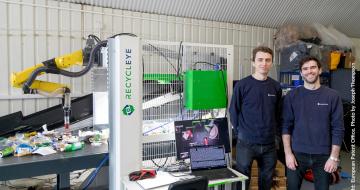Table of Contents
A patent confers on its owner a "right of prohibition" with respect to an invention, which implies that the owner has the right to prohibit third parties from using the invention without prior authorisation. The patent holder also has the right:
- to transfer the patent;
- to license the patent;
- to take action in the event of an infringement of his rights.
The applicant for a patent also has certain rights, even before the patent is actually granted.
Exclusive right of prohibition
A patent gives the holder a temporary, territorial, limited and exclusive right of restriction on an invention. The owner of the patent is the only person entitled to exploit the invention, i.e.:
- use;
- produce;
- sell;
- import or export the invention.
However, this applies on condition that the invention can be exploited (the fact that you obtain a patent, therefore, does not yet mean that you will be able to exploit it freely, for example for reasons of public policy and security). Nevertheless, this right is subject to certain exceptions and limitations.
In practice, this means that the owner of a patent may prohibit any third party from performing a certain number of acts without his authorisation. The acts that are reserved for the patent owner are listed in Article XI.29 of the Code of Economic Law. As such, the patent owner can prohibit:
- the manufacture, proposal, placing on the market, use and import of a product covered by a patent;
- the use of a process which pertains to the patent or, if the third party knows or if the circumstances make it obvious that the use of the process has been made without the consent of the patent holder, offering its use in Belgium;
- the offer, placing on the market, use, import or holding for these purposes of a product obtained directly by the process to which the patent pertains;
- the delivery of the means of implementing a protected invention, if the third party knows or if the circumstances make it obvious that these means are suitable or intended for such implementation. On the other hand, these means may be provided to the person who received authorisation from the patent holder to exploit it. In addition, this prohibition does not apply, if the means in question are products that are commonly available on the market.
Products that are obtained by means of a process protected by a patent also fall within the scope of protection by the patent pertaining to the process.
A Belgian patent only grants protection on Belgian territory. To obtain protection in other countries, a patent application must be filed in these countries either through a national procedure in each country, or through a European patent registration procedure or an international patent application. Consequently, an invention that is protected by a patent abroad is not protected in Belgium by this patent.
Transfer and licence
The patent holder may transfer his patent (and even his patent application) to third parties, either in whole or in part. A transfer of a patent must be made in writing, under penalty of nullity. In addition, the transfer will only be enforceable against third parties, if it is entered in the Patent Register.
To do this, it is necessary to communicate the transfer of the patent right to the Intellectual Property Office Belgium (IPObel) via this form.
Download the French form (DOC, 140 KB)
Dowload the Dutch form (DOC, 141 KB)
Dowload the Form in German (DOCX, 27.41 KB)
This form needs to be accompanied by proof of the deed of transfer, an extract from the deed or a certificate of transfer signed by the parties.
In order to notify multiple successive transfers, you can use the following form:
Download the French form (DOCX, 71.86 KB)
Download the Dutch Form (DOCX, 76.05 KB)
Download the Form in German (DOCX, 67 KB)
The patent holder (or the holder of a patent application) may also choose to licence the patent. A licence gives permission to third parties to use or exploit the invention, in whole or in part, exclusively or not, while leaving the ownership of the patent to the patent holder. Such licences must be in writing, under penalty of nullity and, in order to be enforceable against third parties, they must be recorded in the Patent Register.
To do this, the licence must be communicated to the IPObel via a certificate of the licence agreement via this form:
Download the French form (DOC, 121.5 KB)
Download the Dutch form (DOC, 125.5 KB)
Download the form in German (DOCX, 27.78 KB)
It is not only the transfer or licence agreement that needs to be reported to the IPObel, but also any other change in the status of the patent (e.g. a change in the name or address of the owner, the creation of a pledge or usufruct on the patent). For all these changes, there are formalities to be completed.
The patent holder and the transferee or licensee are free to determine the content of the transfer or licence agreement (price, duration, territorial scope, limitations, control procedures, etc.). However, competition law imposes certain restrictions.
Pledge and usufruct
A pledge is a contract by which a person delivers to his creditor a movable object or value to ensure the fulfilment of his obligations. Usufruct is the right to use property or to receive income from it such as rents, interest or dividends.
The patent holder may give his patent (and even his patent application) in usufruct or pledge his patent (and even his patent application) to third parties.
In order for such documents to be entered in the Patent Register and therefore enforceable against third parties, they must be communicated to IPObel using one of the following forms:
Pledge
Download the French form (DOCX, 29.62 KB)
Download the Dutch form (DOCX, 30 KB)
Download the form in German (DOCX, 26.6 KB)
Usufruct
Download the French form (DOCX, 29.64 KB)
Download the Dutch form (DOCX, 29.07 KB)
Download the form in German (DOCX, 27.66 KB)
The form must be accompanied by proof of the pledge or usufruct, an extract from the pledge or usufruct or a certificate of the pledge or usufruct signed by the parties. In the case of co-ownership, the agreement of all co-owners must be provided.
Please note
The documents provided for the registration of a change of status are published as is in eRegister under the Documents tab. The Office will not modify the documents provided: if you consider that certain details should not be published, it is up to you to hide / blur the passages containing these details, while leaving visible the essential points for registering the change of status by the Office in the Register.
Taking action against patent infringement
When a third party commits an infringement of patent rights, i.e. when they perform an act covered by the patent without authorisation and without an exception or limitation being applicable, the patent holder may sue the latter for infringement.
Before the patent is granted
The patent applicant has the possibility to bring proceedings before the courts against any third parties who use his invention without his authorisation, even before the patent is granted. If the use is an act which is not authorised by the patent, the third party may be ordered to pay fair compensation, which may be confirmed at the time of final granting of the patent. This possibility is only open to the applicant after publication of the patent application or upon notification of a copy of the patent application to the third party concerned.
If the patent is not finally granted or if it does not cover the use carried out by the third party, the latter may request the refunding of the compensation it paid.


